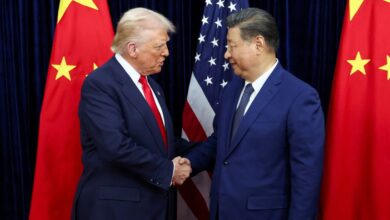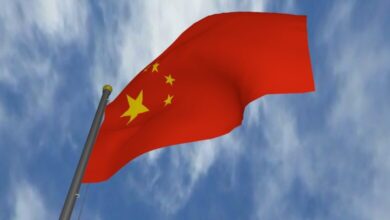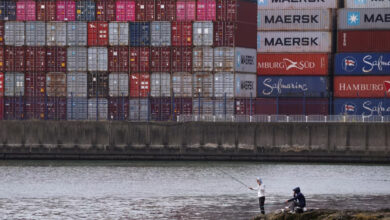A bitter family feud between Hong Kongers and their northern neighbors sparked by mainland China's increasing financial and political clout has led to an awkward debate about the former British colony's identity.
The glittering southern financial center has been governed according to the "one country, two systems" formula since its return to Chinese rule in 1997, but recent incidents have made it look more like "one country, two cultures."
As both sides enter a year of leadership change and economic uncertainty, some are questioning whether the jangling nerves are evidence of a deeper unease among freedom-loving Hong Kongers about their status under Chinese rule.
"This is a period of difficult adjustment and confusion," said political analyst Joseph Cheng of Hong Kong's City University.
"About 20 or 30 years ago, Hong Kong people tended to look down on their Chinese cousins. Now there's a sense of inferiority due to the economic boom in China."
It took an incident as apparently small as a mainland girl flouting rules against eating on Hong Kong trains to set off the haters on each side of the Shenzhen River.
A video of Hong Kongers angrily berating the girl went viral online last month, drawing a blistering response from Peking University professor Kong Qingdong.
"What type of people are those who deliberately don't speak Mandarin? Bastards!" the outspoken academic, who says he is a descendent of Confucius, said in interview with a Chinese website.
"As far as I know, many Hong Kong people don't regard themselves as Chinese. Those kinds of people are used to being the dogs of British colonialists — they are dogs, not humans."
A Hong Kong online forum hit back with insults of their own in the form of a newspaper ad, published last week in the widely-read Apple Daily, depicting mainlanders as "locusts" set to devour Hong Kong's resources.
Millions of mainland tourists and investors pour into Hong Kong every year, adding billions of dollars to the local economy.
But they also fuel property prices and take up limited hospital spaces, particularly in maternity wards which struggle to care for tens of thousands of mainland women every year.
As China's economy has boomed, some Hong Kong natives have come to resent flashy displays of wealth by people they used to look down on as country bumpkins. Terms like "mainland phobia" have entered everyday speech.
Hong Kongers still regard themselves as more civilized and sophisticated than mainlanders, who are often reviled for their poor manners, refusal to stand in queues and penchant for spitting in public.
"I think this tension between Hong Kong people and mainlanders is worsening. This is a ticking time bomb," Hong Kong politician Lee Cheuk-yan said.
The latest incidents have led to some soul searching among Hong Kong natives. Lawmaker Paul Tse raised the issue in the legislature, asking what the government was doing to "minimize as far as possible the conflicts arising from members of the public alienating mainland tourists."
Asked about the locust insults, Chinese tourist Ding Hui said it was "ironic."
"The central government has been supportive of Hong Kong's 'one country, two systems' model, so why do Hong Kong people want to discriminate against us?" she asked.
Under the terms of the handover, Hong Kong's 7 million people are guaranteed a high degree of autonomy and civil liberties not seen on the mainland. Fears of a communist takeover have proven unfounded.
But the system is facing renewed scrutiny ahead of 25 March elections for a new chief executive, who will be chosen by a pro-Beijing electoral committee rather than a public vote. Allegations of fraud and vote-rigging marred district polls late last year, in which pro-Beijing parties made strong gains.
In the years immediately after the handover there was a sense that Hong Kongers were patriotically embracing their Chinese cultural heritage, but the honeymoon now appears to be over.
A recent survey found that more than 79 percent of Hong Kong people identified themselves as Hong Kongers instead of Chinese. The number identifying themselves as Chinese was the lowest in a decade.
"There is a realization that integration is inevitable, but there is a backlash at the same time, as Hong Kong people would like to retain their autonomy and characteristics," said Hong Kong academic Cheng.
Officials from both governments have had to step in to publicly reaffirm the special bond between Hong Kong and China, amid fears of a downturn in Chinese tourism to the southern city, popular with shoppers.
"Irrespective of our origins, we all expect ourselves to be treated fairly, and that our dignity is respected," Hong Kong Equal Opportunities Commission chief Lam Woon-kwong said.




